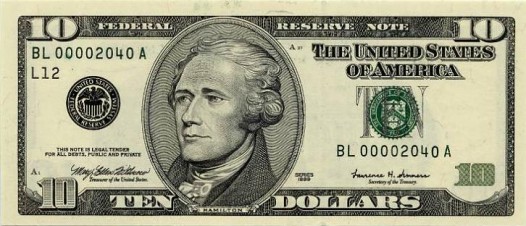Of the hundreds of wealth-building strategies I have tried over the years, the very best one was also the simplest. It is this: make sure you get a little bit richer every day.This thought occurred to me almost thirty years ago. I had recently decided to become rich, and that decision had me reading and thinking about wealth building day and night.
I was bathing my brain in the elixir of clever ideas. It was very stimulating. I had daily fantasies of getting rich in all sorts of fancy ways. But deep down inside, I knew that these complicated strategies were not for me. When it came to making money, I was extremely risk averse. In the race to a multimillion-dollar retirement, I was a tortoise not a hare.
At the time, I had a net worth of zero and an annual salary of $35,000 a year. With three small children and my wife in college, our expenses were gobbling up every nickel of my after-tax income. And so my first wealth-building goal was small: I would get richer by just $10 a day.
I knew that I would eventually raise the ante, but I wondered, “How much money would I acquire in, say, forty years by just putting an extra $10 aside every day in a bank account earning 5% a year?”
I did the numbers and was happy with the answer: almost half-a-million dollars.
My total capital invested would be $149,650. The simple interest would total $156,950, and the compounded interest would amount to $182,061, for a total of $488,661.
Then I wondered, “What would happen if I put away $15 a day?” That came to $719,604.
And then I asked, “What would my retirement fund grow to at 8%?” That came to $1,620,592!
You can imagine my excitement. And so I made this wealth-building commandment number one: get a little bit richer every day.
But I soon realized I couldn’t follow this rule consistently if I invested my money in stocks. The market fluctuated too much. One day I’d be worth $110,000, for example, and the next day I’d be worth $108,000.
My friends and colleagues who knew more about investing than I did told me not to worry about these short-term fluctuations. They said that if I kept my focus on the long term, I’d get the 9% or 10% that the market delivers over a long period of time. But even though I understood the principle, I didn’t want to settle for that.
I resolved the problem. I put the bulk of my retirement savings into municipal bonds, high-yielding bank CDs, and unleveraged rental real estate properties. This drastically reduced its volatility but it also, in theory at least, reduced my expected ultimate return on investment (ROI).
So I compensated for that lower ROI by taking on more work and devoting a portion of that extra income to my retirement savings. That ensured that I was always ahead of my schedule—even if the ROIs I was getting on bonds, CDs, or real estate dropped.
This simple, tortoise-paced program worked. Since I made this resolution in the early 1980s, I have never experienced a single day of being poorer than I was the day before.
Think about that.
But there is more. Submitting yourself to this commandment will change the way you think and feel about building wealth. It will help you appreciate the miracle of compound interest. It will make you less accepting of risk. It will make it easier to understand the benefits and drawbacks of every type of investing. And it will turn you into an income addict, which is, in my book, an essential component of thinking rich.
You can begin, as I did, with a goal of $10 a day. Once that becomes easier, you will find that you want to raise the ante. You could hike it to $15 as I did my first year, but soon thereafter your addiction to income will make it possible for you to raise your target much higher than that. These days, my target is $10,000 a day—and I do it without worry.
I have explained this strategy to lots of people over the years. And I don’t think a single one ever took it seriously. Perhaps it didn’t seem clever enough for them. Or perhaps they felt they were already doing well by following the investment schemes they were using at the time.
But none of them ever acquired the wealth I did. They sometimes had great individual hits that they’d tell me about—or even streaks of winners when the markets were favorable. But as time passed, Mr. Market always had his way with them.
In the race for wealth, I’ve always been a tortoise. But by following this simple rule of getting richer every day, I was able to do better than I ever expected without a single day of feeling poorer than I was the day before.

